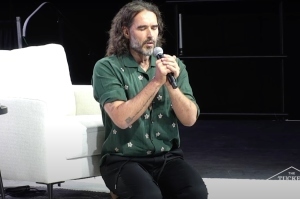Alabama Supreme Court chief justice's embryo ruling is refreshing defense of life

An Alabama Supreme Court ruling last week that correctly identified and defined human embryos as persons has elicited strong and defiant reactions from abortion activists.
The case in question involves a lawsuit brought by James and Emily Page, Alabama parents whose frozen embryos were destroyed following a break-in at Mobile’s Center for Reproductive Medicine.
The decision by Chief Justice Tom Parker declared frozen embryos to be “extrauterine children,” and therefore protected under Alabama law. Chief Parker’s decision was carefully and thoroughly argued, an elegant and robust defense of innocent life that delved into the foundation and history of the state’s legislative case that every human being is worthy of protection.
Predictably, critics have pounced and are fulminating. In Friday’s New York Times, columnist Jamelle Bouie pens a piece titled, “Samuel Alito Opened the Door to Reproductive Hell.” Of course, the reference is to Justice Alito’s majority opinion that reversed Roe and returned the question and issue of abortion back to the states.
Characterizing a ruling that has saved approximately 85,000 children’s lives as “Hell” reveals the dark and demonic appetite for death that so many radical abortion activists appear to possess.
Last week’s decision has also triggered false reports that in vitro fertilization treatments are now banned in Dixie. Lawmakers are suggesting clarifying legislation may be forthcoming, but the decision didn’t ban anything — except the willful and illegal destruction of human life.
Critics of the decision have also pounced on Chief Justice Parker’s 131-page decision because it contained 41 references to God. Curiously, the same antagonists who are chastising the Chief for referencing more than the United States and Alabama constitutions have no problem with liberal justices citing any number of other sources while justifying their own rationales in equally controversial cases.
The significant difference, of course, is that Chief Justice Parker rightly notes that faith and religious belief were foundational to the documents that shape and inform our laws.
In a particularly poignant passage, Chief Justice Parker writes:
In summary, the theologically based view of the sanctity of life adopted by the People of Alabama encompasses the following: 1. God made every person in His image; 2. each person therefore has a value that far exceeds the ability of human beings to calculate; and 3. human life cannot be wrongfully destroyed without incurring the wrath of a holy God, who views the destruction of His image as an affront to Himself. Section 36.06 recognizes that this is true of unborn human life no less than it is of all other human life — that even before birth, all human beings bear the image of God, and their lives cannot be destroyed without effacing His glory.
The People of Alabama have declared the public policy of this State to be that unborn human life is sacred. We believe that each human being, from the moment of conception, is made in the image of God, created by Him to reflect His likeness. It is as if the People of Alabama took what was spoken of the prophet Jeremiah and applied it to every unborn person in this state: "Before I formed you in the womb I knew you, Before you were born I sanctified you" (Jeremiah 1:5,NKJV 1982).
How refreshing to read such a cogent and unapologetic defense of human life from a judge unafraid and courageous enough to remind the world of how the law came to be in the first place.
Incidentally, Chief Justice Parker helped launch the Alabama Family Alliance, now known as the Alabama Family Policy Institute.
The Chief Justice is right that the taking of innocent human life will incur the wrath of God. The critical question remains whether those especially irked by that statement will see his truth-telling as a gift and incentive to change their ways and beliefs — or discover that he’s right, but only after it’s too late to do anything about it.
Jim Daly is president of Focus on the Family and host of the daily "Focus on the Family" broadcast heard by more than 6.3 million listeners per week on more than 1,000 radio stations across the U.S.




























